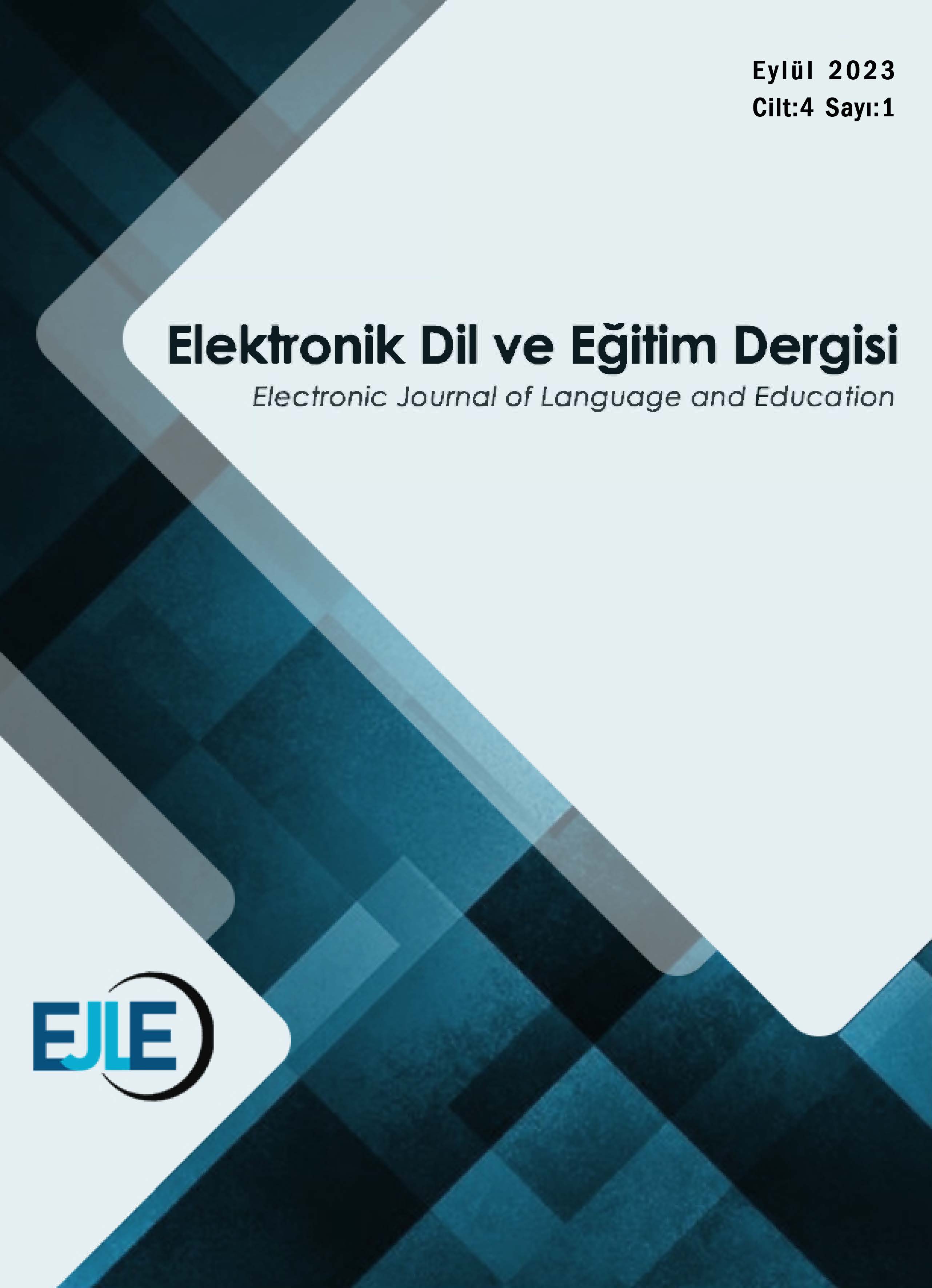Açık Öğretim Ortaokulu 6. Sınıf Türkçe Ders Kitabındaki Okuma Metinlerinin Söz Varlığı Unsurları Bakımından İncelenmesi
Author :
Abstract
Bugün Türkçe, konuşulduğu coğrafyanın genişliğinin yanı sıra oldukça köklü bir geçmişe sahip bir dildir ve uzun yıllardır varlığını sürdürmektedir. Bu süreç içerisinde Türkçe, her dilde olduğu gibi, çeşitli dönemlere ayrılmış; ayrıldığı dönemlerde farklı kavimlerden ve bu kavimlerin farklı dil, din, kültür unsurlarından etkilenmiş bunun yanında bu kavimleri de etkilemiştir. Türk dilinin belirli süreçlerden geçmesi ve kültürel etkileşimler kurması sonucunda dilde çeşitli değişim ve gelişmeler yaşanmıştır. Tüm bu değişim ve gelişmeler bir dilin zenginliğini gösteren ölçütlerden biri olan sözvarlığına da yansımıştır. Türkçenin söz varlığı konusundaki zenginliğini ortaya koyacağı nesilden nesle aktarılmasını sağlayacağı en önemli kurumlardan biri de okullardır. Okullarda ise özellikle Türkçe dersi başta olmak üzere bu kapsamda Türkçe öğretmenlerine ve Türkçe dersinde kullanılan öğretim araç ve gereçlerin niteliği kullanıcılarına zengin bir söz varlığı unsuru sunması açısından üzerinde durulması gereken bir konudur. Açık öğretim sistemleri ve Türkçe dersleri için temel kaynaklardan birinin ders kitapları olduğu düşünüldüğünde bu materyallerin Türkçeyi iyi derecede temsil edebilmesi gerektiği beklenmektedir. Her geçen gün önemi giderek artan ve örgün eğitim sisteminden sadece öğretimin uzaktan eğitim yoluyla gerçekleştirilmesiyle ayrılan açık öğretim sistemleri için de durum aynıdır. Bu sebeple çalışmada, MEB’in Açık Öğretim ortaokulu 6. sınıf Türkçe dersi için hazırlamış olduğu ders kitabında Türkçenin söz varlığı unsurlarının tespiti amaçlanmıştır. Bu amaç doğrultusunda çalışmada nitel araştırma yöntemlerinden doküman analizi kullanılmıştır. Veriler, Açık Öğretim 6. sınıf ortaokulu Türkçe ders kitabından elde edilmiştir. Elde edilen bulgulara göre; toplam söz varlığı 5963, farklı söz varlığı sayısı 2217 olarak tespit edilmiştir. Açık Öğretim 6. sınıf ortaokul Türkçe ders kitabının fiiller, terimler ve ilişki sözleri bakımından zengin olduğu fakat diğer söz varlığı unsurları bakımından eksik olduğu ve atasözlerine hiç yer verilmediği tespit edilmiştir.
Keywords
Abstract
Today, Turkish is a language with a very deep-rooted history as well as the vastness of the geography in which it is spoken and has been in existence for many years. During this process, Turkish language, as in every language, has been divided into various periods; it has been influenced by different tribes and different language, religion and cultural elements of these tribes in the periods when it was divided, as well as influencing these tribes. As a result of the Turkish language going through certain processes and establishing cultural interactions, various changes and developments have occurred in the language. All these changes and developments are reflected in the vocabulary, which is one of the criteria showing the richness of a language. One of the most important institutions where Turkish will reveal its richness in vocabulary and ensure its transfer from generation to generation is schools. In schools, it is an issue that should be emphasised in terms of providing a rich vocabulary element to Turkish teachers and the quality of teaching tools and materials used in Turkish lessons, especially in Turkish lessons. Considering that one of the main sources for distance education systems and Turkish courses is textbooks, it is expected that these materials should be able to represent Turkish well. The situation is the same for distance education systems, which are becoming more and more important day by day and which are separated from the formal education system only by the realisation of education through distance education. For this reason, this study aims to determine the elements of Turkish vocabulary in the textbook prepared by the Ministry of National Education for the 6th grade Turkish course of distance education secondary school. For this purpose, document analysis, one of the qualitative research methods, was used in the study. The data were obtained from the distance education 6th grade middle school Turkish textbook. According to the findings, the total number of vocabulary items was 5963 and the number of different vocabulary items was 2217. It was determined that the distance education 6th grade secondary school Turkish textbook is rich in terms of verbs, terms and relationship words, but it is deficient in terms of other vocabulary elements and proverbs are not included at all.





